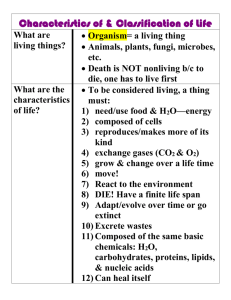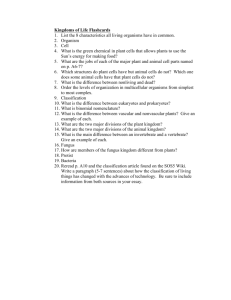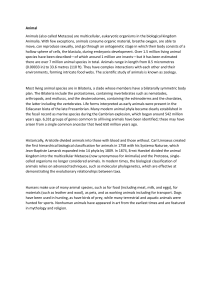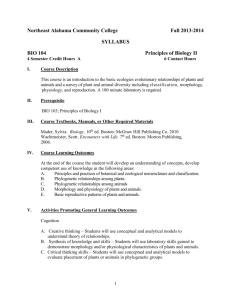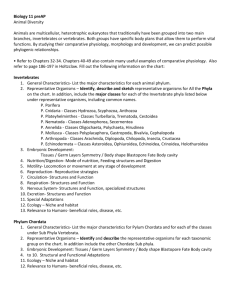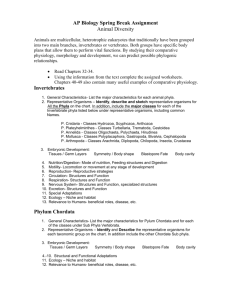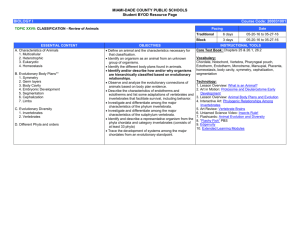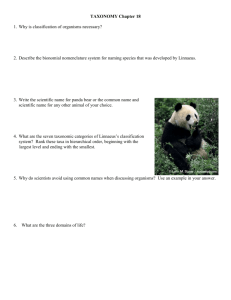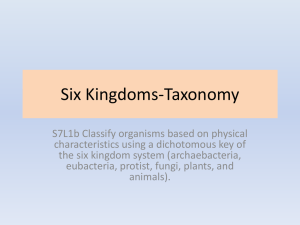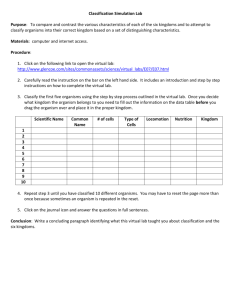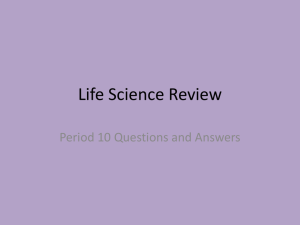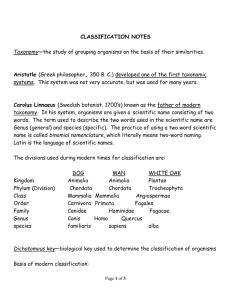Transitional Biology
advertisement
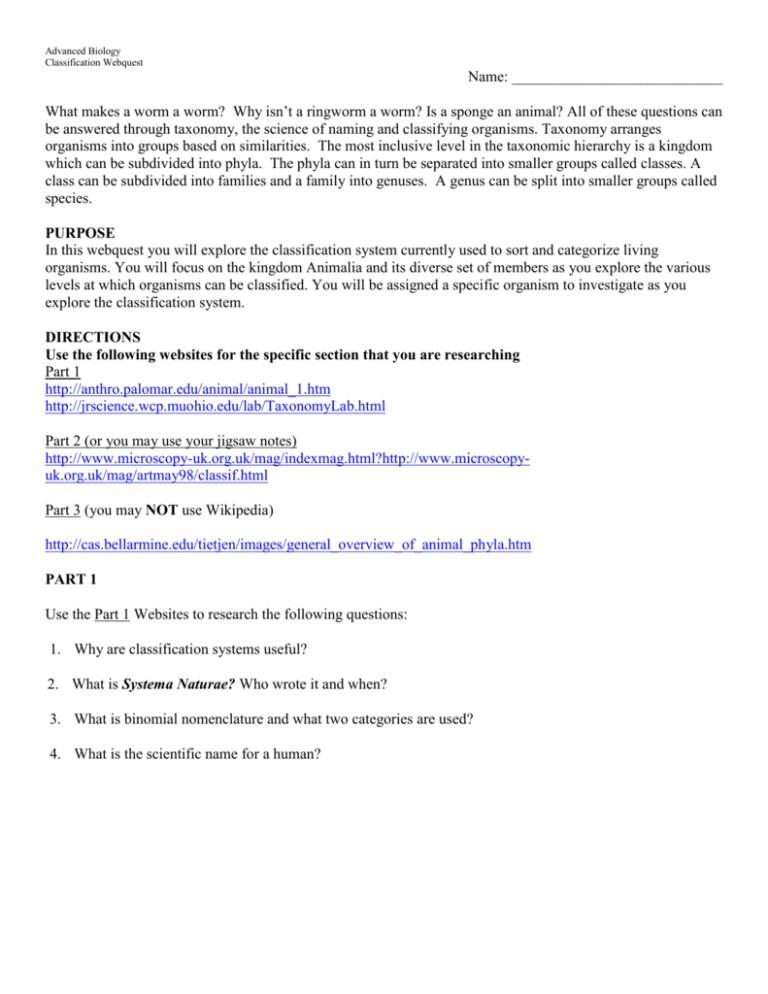
Advanced Biology Classification Webquest Name: ____________________________ What makes a worm a worm? Why isn’t a ringworm a worm? Is a sponge an animal? All of these questions can be answered through taxonomy, the science of naming and classifying organisms. Taxonomy arranges organisms into groups based on similarities. The most inclusive level in the taxonomic hierarchy is a kingdom which can be subdivided into phyla. The phyla can in turn be separated into smaller groups called classes. A class can be subdivided into families and a family into genuses. A genus can be split into smaller groups called species. PURPOSE In this webquest you will explore the classification system currently used to sort and categorize living organisms. You will focus on the kingdom Animalia and its diverse set of members as you explore the various levels at which organisms can be classified. You will be assigned a specific organism to investigate as you explore the classification system. DIRECTIONS Use the following websites for the specific section that you are researching Part 1 http://anthro.palomar.edu/animal/animal_1.htm http://jrscience.wcp.muohio.edu/lab/TaxonomyLab.html Part 2 (or you may use your jigsaw notes) http://www.microscopy-uk.org.uk/mag/indexmag.html?http://www.microscopyuk.org.uk/mag/artmay98/classif.html Part 3 (you may NOT use Wikipedia) http://cas.bellarmine.edu/tietjen/images/general_overview_of_animal_phyla.htm PART 1 Use the Part 1 Websites to research the following questions: 1. Why are classification systems useful? 2. What is Systema Naturae? Who wrote it and when? 3. What is binomial nomenclature and what two categories are used? 4. What is the scientific name for a human? PART 2 Use the Part 2 Website to complete the following chart. Kingdom Characteristics PART 3 You are now assigned a list of several members of the kingdom Animalia. Use the websites from Part 3 along with a search engine in order to complete the chart. Kingdom Animalia Summary Chart Common Name Sponge Jellyfish Tapeworm Roundworm Sketch of organism Phylum Phylum Traits Habitat/info 2 Other phyla members Leech Slug Beetle Starfish Mouse ANALYSIS QUESTIONS 1. To which of the following kingdoms would these characteristics belong? a. Prokaryotic, unicellular, and has a cell wall? ______________________ b. Photosynthetic, aquatic, unicellular? ____________________________ c. Photosynthetic, multicellular and terrestrial? ______________________ d. Heterotrophic, multicellular, and ingestive? __________________ 2. Based on the binomial classification system, the mosquito, Anopheles punctulatus, is most closely related in structure to a. Culex pipiens b. Anopheles quadrimaculatus c. Ades aeqypti d. Aedes sollicitans 3. Which of the classification groups would contain the most similar members? Explain your answer. 4. What similarities are found among segmented worms, like the leech, and flatworms, such as the tapeworm? What differences are found among these two groups?
